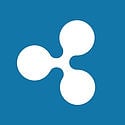The weakness in the housing market intensified further in August as more cities reported declining house prices. China does not report a nationwide house price index, but only development in house prices for individual cities. However, we have calculated our own nationwide house price index based on the development in house prices for new homes in the 35 largest cities.
According to our calculations, the increase in prices for new homes in August eased to 0.8% y/y after increasing 3.0% y/y in July. Seasonally adjusted house prices declined 1.1% m/m in August after declining 1.0% m/m in July. August was the third month in a row with a decline in house prices. According to our calculations, house prices have declined 11.3% annualised over the past three months.
The decline in house prices now appears to be more severe than the declines the Chinese housing market experienced in the previous two downturns in 2008/09 and 2011/12. The development in house prices is usually closely connected to the development in sales of new homes but in the past two months the declines in house prices have been more severe than suggested by the development in new home sales alone. This indicates that supply factors have increasingly started to weigh on house prices in July and August. In particular, it appears that credit-constrained developers are increasingly being forced to liquidate inventories of unsold homes.
The intensifying weakness in the housing market is a concern, although a minor correction in house prices is likely to be welcomed by the government. New home sales tend to lead both house construction and house prices, so we would need to see a stabilisation in new home sales before we could call the bottom for the housing market. The development in financial conditions suggests a stabilisation in new homes sales later this year but a substantial recovery in the housing market will probably require an interest rate cut. So far the main policy response has been to ease some of the restrictions on home purchases that have been introduced in recent years at the local level. In addition, the government is channeling funding to construction of public housing.
On a positive note, there are so far no signs of a substantial negative spill-over to private consumption from the weak housing market. Real retail sales were broadly flat in August and consumer confidence has also been resilient. The IMF estimates that the wealth impact on private consumption in China is relatively low due to households’ low debt leverage. Specifically, the IMF estimates that a 10% drop in house prices will cut private consumption by 0.7% (spread over more than one year).
This publication has been prepared by Danske Bank for information purposes only. It is not an offer or solicitation of any offer to purchase or sell any financial instrument. Whilst reasonable care has been taken to ensure that its contents are not untrue or misleading, no representation is made as to its accuracy or completeness and no liability is accepted for any loss arising from reliance on it. Danske Bank, its affiliates or staff, may perform services for, solicit business from, hold long or short positions in, or otherwise be interested in the investments (including derivatives), of any issuer mentioned herein. Danske Bank's research analysts are not permitted to invest in securities under coverage in their research sector.
This publication is not intended for private customers in the UK or any person in the US. Danske Bank A/S is regulated by the FSA for the conduct of designated investment business in the UK and is a member of the London Stock Exchange.
Copyright () Danske Bank A/S. All rights reserved. This publication is protected by copyright and may not be reproduced in whole or in part without permission.
Recommended Content
Editors’ Picks
EUR/USD holds gains above 1.0700, as key US data loom

EUR/USD holds gains above 1.0700 in the European session on Thursday. Renewed US Dollar weakness offsets the risk-off market environment, supporting the pair ahead of the key US GDP and PCE inflation data.
GBP/USD extends recovery above 1.2500, awaits US GDP data

GBP/USD is catching a fresh bid wave, rising above 1.2500 in European trading on Thursday. The US Dollar resumes its corrective downside, as traders resort to repositioning ahead of the high-impact US advance GDP data for the first quarter.
Gold price edges higher amid weaker USD and softer risk tone, focus remains on US GDP

Gold price (XAU/USD) attracts some dip-buying in the vicinity of the $2,300 mark on Thursday and for now, seems to have snapped a three-day losing streak, though the upside potential seems limited.
XRP extends its decline, crypto experts comment on Ripple stablecoin and benefits for XRP Ledger

Ripple extends decline to $0.52 on Thursday, wipes out weekly gains. Crypto expert asks Ripple CTO how the stablecoin will benefit the XRP Ledger and native token XRP.
US Q1 GDP Preview: Economic growth set to remain firm in, albeit easing from Q4

The United States Gross Domestic Product (GDP) is seen expanding at an annualized rate of 2.5% in Q1. The current resilience of the US economy bolsters the case for a soft landing.